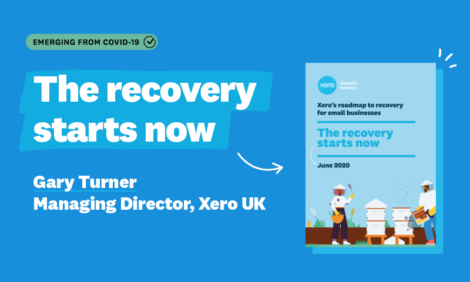
The recovery starts now

Data from Xero’s Small Business Insights, has confirmed the impact of COVID-19 on UK small business revenue and employment. Amongst the UK’s small businesses, the analysis shows:
- Between March and May there was a 28% drop in revenue
- During the same time, there was a 6% decline in employment
- Late payments to small businesses increased by 7.8 days between February and May

Business conditions are tough. Small business owners will be doing everything they can to keep their business going now and in the future. Now we need to come together to help small firms recover and rebuild. Small businesses across the country need more support than they are currently getting. We need a better business environment in which small firms can thrive.
Our roadmap to recovery: the recovery starts now
Today we are launching our “Roadmap to recovery for small businesses”, which looks at four critical areas to support small firms: digital technology, finance and management, skills, and the regions.
Making the most of the right digital technology helps small firms to find greater value, scale and resilience to whatever is to come.
One of the remarkable achievements of so many small firms in recent months has been how they have been able to switch their business models to operate differently.
In the coming weeks, we are meeting Government ministers and policy makers to make the case for our customers, stick up for small firms, and fight for fairer legislation.
Making the case to Government in the fight for fairer legislation
We know that many small firms struggle to manage their cash flow and maintain adequate reserves.
Quite often, the cash flow that small firms need is tied up with late paying customers. But when working capital can make a real difference between a small firm surviving and recovering or not, this isn’t good enough.
That’s why we recently met Government officials, who are responsible for tackling late and unfavourable payment practices in the private sector.
We made the case that the government should:
- set 30 days as standard payment terms for all businesses
- legislate on this issue, and ensure that big businesses pay their small business suppliers on time
What you can do to help tackle late payments
To help tackle late and unfavourable payment practices, the Small Business Commissioner, Philip King, is encouraging all firms to join the Prompt Payment Code (PPC).
The PPC is a voluntary code for businesses to encourage prompt and favourable payment practices. It is administered by the Small Business Commissioner on behalf of the Department for Business, Energy and Industrial Strategy (BEIS)
Commenting on this King said:“It is important to see that all businesses are leading by example by signing up to the Prompt Payment Code (PPC). “This pledge of support will demonstrate to small businesses that signatories of the PPC have set high standards to pay and deal with their suppliers ethically.
The Prompt Payment Code is another tool that can be used to challenge poor practice. Once approved to join the code, you can use the PPC logo on your documentation and website to show that you are serious about good payment practice. With this show of commitment, we will drive a change in UK payment culture.”
These are just some of the things we are doing to campaign for our customers, and the entire small business community, to help you rebuild.
In the next couple of months, in addition to our programme of meetings with Government, we will also be launching new report that looks at the link between digital technology and small business performance.
We will continue to update you on our progress.
Visit our dedicated site for more resources, webinars and inspirational stories to help you emerge stronger from the Covid-19 pandemic.
The post The recovery starts now appeared first on Xero Blog.
Source: Xero Blog






